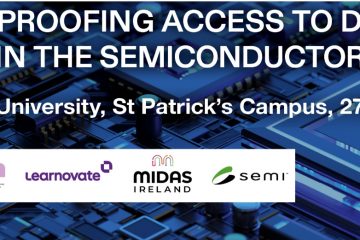Non Members -
Embedded Linux, Kernel and Driver Programming
17 – 21 Sept given by Doulos Blackbox offices, Limerick
Objectives
Setting up a development environment
Mastering kernel development and debug tools
Discovering multi-core programming in the Linux kernel
Programming IOs, interrupts, timers and DMA
Installing and integrating drivers inside Linux kernel
Managing synchronous and asynchronous IOs and ioctl
Writing a complete character driver
Mastering kernel debugging techniques.
Discovering the specificities of USB drivers
Labs are conducted on quad Cortex/A9-based "Sabrelite" target boards from NXP
We use a recent (4.x) Linux kernel.
Course environment
Printed course material (in English)
One Linux PC for two trainees.
One target platform (i.MX6 Sabrelite) for two trainees
Prerequisite
Good C programming skills
Preferably knowledge of Linux user programming
Course Outline
First Day
Cross development toolchains 1 hour
Pre-compiled toolchains
Toolchain generation tools
Exercise: Installing a pre-compiled toolchain
The Linux Boot 2 hours
Booting Linux using u-boot
Linux kernel parameters
The Linux startup sequence
The SystemV initialization system
Exercise: Boot Linux through the network using TFTP and NFS
Creating the embedded Linux kernel 1 hour
Downloading stable source code
Configuring the kernel
Compiling the kernel and its modules
Installing the kernel and the modules
Exercise: Configuring and compiling a target kernel for the target board
Linux kernel programming and debugging 3 hours
Development in the Linux kernel
Memory allocation
Linked lists
Debug tools
Exercise: Writing the "hello world" kernel module
Exercise: Adding a driver to kernel sources and configuration menu
Exercise: Using module parameters
Exercise: Writing interdependent modules using memory allocations, reference counting and linked lists
Second Day
Kernel multi-tasking 2.5 hours
Task handling
Concurrent programming
Kernel threads
High Resolution Timers
Exercise: Fixing race conditions in the previous lab with mutexes
Linux Kernel Tracing and Profiling 2.5 hours
The Kernel tracing infrastructure
Debugging the kernel using traces
Exercise: Analyze kernel behavior using static and dynamic traces
Performance monitoring in the Linux kernel
Exercise: Use perf to analyse kernel and program performances
Introduction to Linux drivers 2 hours
Accessing the device driver from user space
Driver registration
Exercise: Step by step implementation of a character driver: •driver registration (major/minor reservation) and device special file creation (/dev)
Third Day
Driver installation and device access 2 hours
Kernel structures used by drivers
Opening and closing devices
Exercise: Step by step implementation of a character driver: •Implementing open and release
Driver I/O functions 2.5 hours
Data transfers
Controlling the device
Mapping device memory
Exercise: Step by step implementation of a character driver:
•Implementing read and write •Implementing ioctl •Implementing mmap
Synchronous and asynchronous requests 2.5 hours
Task synchronization
Synchronous request
Asynchronous requests
Exercise: implementation of a pipe-like driver: •implementing waiting and waking •adding nonblocking, asynchronous and multiplexed operations (O_NONBLOCK, SIGIO, poll/select)
Fourth Day
Input/Output and interrupts 2 hours
Memory-mapped registers
Interrupts
Gpios
Exercise: Polling gpio driver with raw register access
Exercise: Interrupt-based gpio driver with raw register access
Exercise: gpio driver using the gpiolib
Busses 2.5 hours
The Platform bus
The PCI bus
Exercise: implementing a platform driver
Linux Driver Model 2.5 hours
Linux Driver Model Architecture
Hot plug management
Writing udev rules
Exercise: Writing a custom class driver
Exercise: Writing a misc driver
Fifth Day
DMA 2 hours
Direct Memory Access
DMA programming
Memory barriers
USB Drivers 4 hours
The USB bus
User view of the USB bus and devices
USB device drivers
Exercice: Writing a basic usb device driver using URBs
Exercice: Writing an usb device driver using synchronous request management
Embedded file systems 1 hour
Storage interfaces
Flash memories and Linux MTDs
The various flash file system formats: JFFS2, YAFFS2, UBIFS
Flashing the file system
Exercise: Building JFFS2, YAFFS2 or UBIFS file systems


